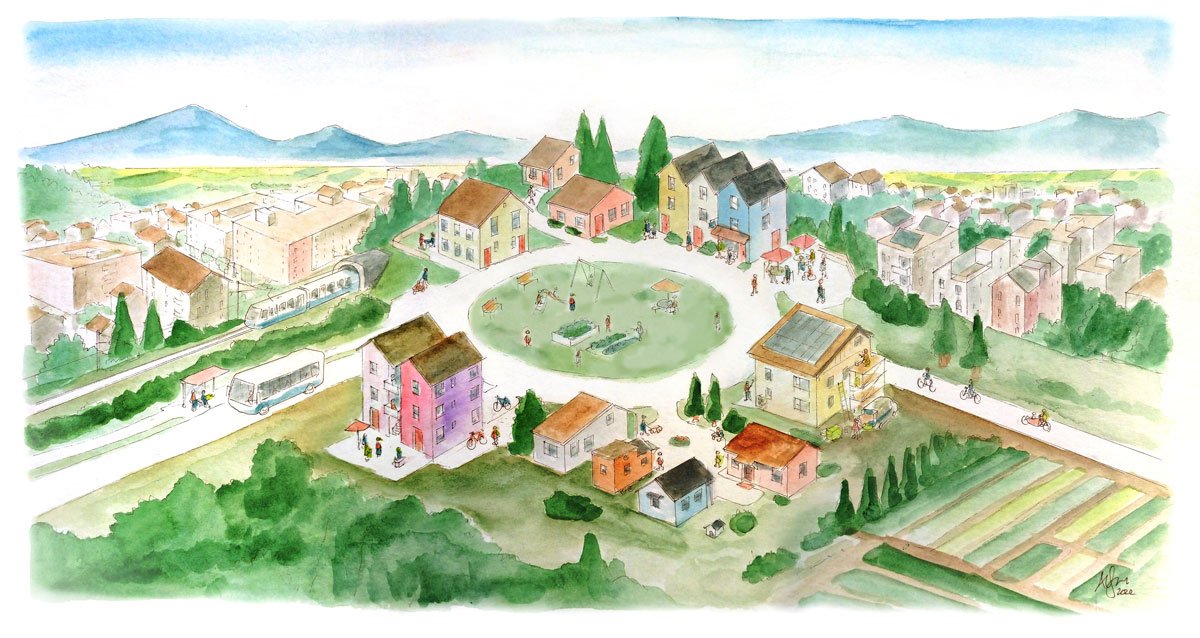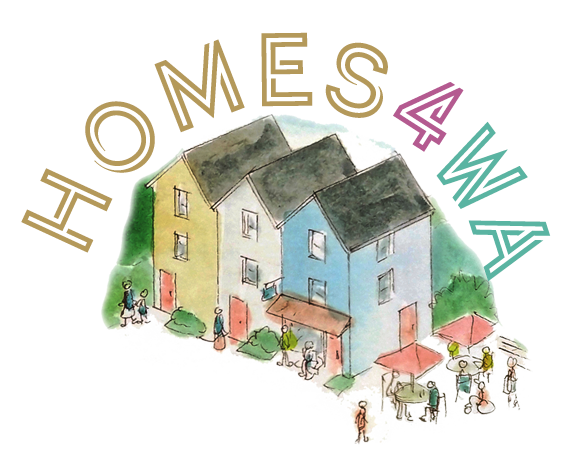
More Homes, More Affordable Choices for Washingtonians
Key policy solutions in 2024 for Washington legislators to unlock more homes, of all shapes and sizes, for more affordable, connected, and sustainable communities.
Lieutenant Governor Denny Heck declared 2023 “the year of housing.” From Spokane to Skamania to Seattle to Skagit County, Washingtonians have cried out for solutions to control the state’s soaring home prices and rents and worsening instability and homelessness. The legislature stepped up with a suite of housing affordability bills, lifting bans on fourplexes, duplexes, and basement and backyard apartments (ADUs) in cities and towns across the state; cutting red tape and costs added by delayed permitting and excessive review; opening pathways to homeownership; and making unprecedented investments in low-income housing and supportive services.
State leaders made great strides in 2023, but Washington’s communities need additional affordability solutions. In 2024, state and local leaders are ready to take critical next steps for housing affordability, removing yet more of the burdensome costs, outdated and exclusionary rules, and often arbitrary restrictions that stand in the way of home choices of all shapes and sizes in Washington’s job centers.
Among the bills we’re supporting in 2024 are:
-
Co-living offers low-cost, community-centered homes in some of the region’s most opportunity-rich neighborhoods. These smaller spaces with shared amenities, like kitchens, outdoor spaces, and lounges, make for high-value urban infill—economical home choices near jobs, transit, and services—while also offering comfortable, close-in, affordable home options for a diversity of residents: a recent college graduate; a single, early-career professional; an single senior who wants to downsize and stay in their neighborhood; newlyweds saving up to buy a first home. Local zoning largely bans co-living in Washington’s cities, and state legislation could legalize these much-needed housing options.
HB 1998 (and companion SB 5901) would legalize co-living statewide.
-
Flexibility to allow lot splitting gives homeowners more financial options to afford to stay in their homes and opens up more opportunities for lower-cost homeownership in established, convenient neighborhoods. Introduced in 2023, HB 1245 would have allowed homeowners to sell part of their house lot for the construction of another home, authorizing divided lots as small as 2,000 square feet. This practice of lot splitting creates more affordable homes for buyers and gives owners another option to be able to afford to remain in their homes and communities. Lawmakers are expected to take up a lot split bill again. Read more from the Black Home Initiative about how lot splitting is one important way for Washington state communities to reverse the historic injustices of exclusionary zoning practices, like blanket requirements for overly large, high-cost lot sizes.
On the first day of the 2024 session, the House re-passed HB 1245, sending it back to the Senate.
-
Excessive parking requirements make all kinds of housing more expensive and harder to tuck into existing city neighborhoods. In particular, Washington’s landmark bills to increase the availability of middle housing and ADUs are at risk of being undermined by arbitrarily steep local parking mandates. These often require more parking than residents need—in places they don’t need more—thwarting homebuilding through prohibitive costs or because parking simply won’t fit on a site. Introduced in 2023, HB 1351 would have eliminated requirements for off-street parking in both housing and commercial developments located near frequent transit. Lawmakers can revisit that bill, or alternatively can pursue legislation to relax mandates for targeted uses such as senior and affordable housing, or to increase flexibility.
SB 6015 would set new standards for more flexible and efficient parking configurations.
-
Washington recently passed landmark reforms to allow more housing, and the proof is in the pudding: more homes built. But some cities may retain restrictions that undermine state reforms and continue to quash homebuilding, keeping prices high and preventing people who work in those communities from being able to afford to live there. Washington would benefit from a system of accountability that monitors production of badly needed homes and establishes consequences for cities that lag. As a first step, lawmakers could require closer oversight of Comprehensive Plan Housing Elements.
HB 2113 would create a new statewide housing production accountability system with a “builder’s remedy” for non-compliance.
-
A key piece of the housing abundance policy puzzle that hasn’t gotten as much attention as zoning is building code reform. Building codes are great for ensuring housing doesn’t collapse or burn down, but in some cases they can needlessly add cost to construction or prevent innovative designs. For example, most municipalities require any housing with three or more units to meet the same rigorous commercial building code that applies to skyscrapers, rather than the far less onerous residential code that applies to houses and duplexes.
HB 2017 would modify the residential building code for up to sixplexes, enable efficient design of studio apartments, incentivize energy-efficient “Passive House” construction, and prioritize tree protection over parking.
-
Creating more homes near the state’s biggest transit investments connects people with jobs, schools, and other community resources. The 2023 bill SB 5466 would have reformed local zoning to allow midsized apartment buildings based on their distance from transit stops and the type of transit. Legalizing apartments near transit not only helps undo the state’s housing shortage and maximize return on the state’s transit investments; it also opens up economic opportunities for a wider range of income levels by allowing more modest-sized and lower-cost homes to rent and buy in places where cutting car trips or shedding the cost of owning a car are available options. What’s more, it allows healthier, walkable neighborhoods that reduce climate pollution and free people from crushing car commutes. The challenge is to craft a policy that flexibly supports the creation of low-income housing near transit in the state’s wide diversity of housing markets, without the unintended side effect of holding back the construction of market-rate homes desperately needed to stabilize prices overall.
HB 2160 (and companion SB 6024) would legalize more homes near rail and bus-rapid-transit stops.
-
Sightline Institute’s expertise is on zoning and other regulatory obstacles to housing affordability, and that’s where we focus our state housing policy work. However, Sightline also supports the other two complementary policy pillars necessary to address the housing crisis: more protections for tenants and more funding for subsidized housing.
Protect tenants most at risk of homelessness and housing instability
HB 2160 (and companion SB 6024) would establish a cap on annual rent increases of 5 percent, exempting new construction and not capping rent increases between tenancies.
Support low-income housing with reliable, equitable funding sources
HB 2276 (and companion SB 6191) would raise the REET rate on higher cost sales while reducing it on lower cost sales, creating a net revenue increase to fund affordable housing.
HB 2308 would expand the state’s property tax exemption to apply to existing buildings and commercial to housing conversions that reserve a portion of their units as affordable to lower-incomes.
HB 1892 would create a revolving loan fund for affordable housing development.

